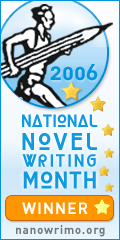There's something 'freeing' about digital photography.

As usual, I've linked the title of this post - this time it points to my 'Derek Benner Photography' page where you can see a gallery of some of my images. Right now I've got five images posted. At the bottom there is a link to my DeviantArt page where some of these images can be purchased.
But that's not the point. The point is that having a digital SLR - in my case a Nikon D90 w/18-105mm VR lens, but I believe the same could be said for any of the current crop of dSLRs - has freed me from many of the technical details of photography. This 'freedom' allows me to concentrate upon getting the shots I want to make. Right now, I'm learning all there is to creating a great hummingbird photo. (I've attached the most current hummer shot to this article.) I've progressed in my bird photography to the point where - after just a few short weeks - I can actually get a recognizable photo of the hummingbird in question. One which is sharp enough to show some feather detail and fast enough to capture the wings in mid-stroke. I won't claim these current images are 'National Geographic' quality, but they're good enough to show to my friends and family.
Part of what makes these images possible is that I have a dSLR. That means I can choose a lens suitable for the task at hand. In this case, I chose my trusty 70-300mm telephoto zoom (Yes, I *do* lust after one of those 'monster' 300mm f2.8s or 600mm f4s but that ain't gonna happen unless I win the lottery.) because from where I'm shooting, anything shorter than 300mm gives me just too small an image of the bird in the overall picture. That's almost impossible to do with one of the single-focal-length 35mm point-and-shoot cameras and nearly as impossible for a point-and-shoot digital camera with a wide-to-short-tele zoom.
Another part is that the current crop of dSLR cameras allows for massive in-camera customization of image sharpness, contrast, color saturation, brightness and color white balance. Not only that, but I can choose between low ISO ratings for less 'noise' in the image or boost all the way up to extremely high ISOs (3200, and even 6400) for shooting in very dark situations. Yes, at the high ISO end, I'm going to get much more color noise, but consider this, with a 35mm camera, I'd either have to have several cameras loaded with the different films I thought I might need or I'd have to stop shooting in mid-roll, rewind and insert another roll of film - that would sure waste critical time!
Plus, the current release of lenses for dSLR cameras tend towards some form of in-camera or in-lens image stabilization. That means I can shoot hand-held at far lower shutter speeds and still have a reasonable chance of not having camera-shake ruin the images. It's true that image-stabilization (IS) lenses are more expensive, but almost all the dSLR kits offer a basic wide-to-tele zoom w/IS as part of the kit.
Finally, even with all these hardware enhancements, I find that some images just aren't quite 'popping'. That's where the final tool kicks in - Photoshop. Yes, Photoshop, or the free equivalent, GIMP, lets me tweak the saturation, sharpness and contrast - allows me to crop out the non-essentials and put the 'finishing touches' om my digital images. And at no time do I have to send out film for processing and wait for them to come back from the lab.
With all these tools, I've actually found myself shooting an image, transferring it to the computer, performing post-processing and uploading the image to my website inside of one hour.
Some people may complain about 'too much technology' but I'm quite happy to have it.
Anyway, I hope you feel the same way. Keep on shooting!








0 Comments:
Post a Comment
<< Home